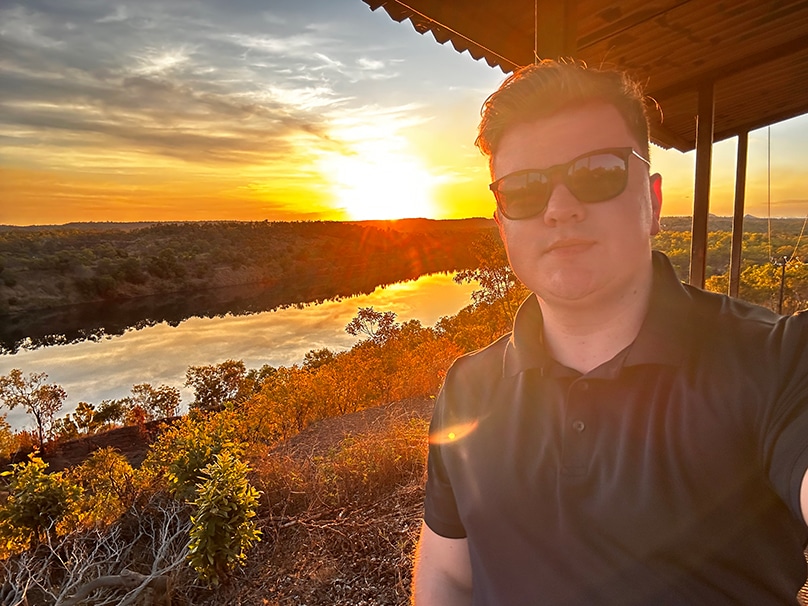
I turn 30 later this year. I am told that’s a big deal, but I am not sure why—most of the country has already done it.
But I was lucky enough to spend my thirtieth year doing something most of the country will never do. I had a front row seat to a referendum campaign.
I work for Jacinta Nampijinpa Price, and this year I took more flights than I cared for, slept in more hotels than I ever wanted to, and saw a side to Australia that I wish I never had.
I was called a lot of names they won’t let me print. I was routinely called a racist, a bigot and my favorite label—a disgrace to the nation.
But outside the cities, I saw a side of Australia I never thought I would.
I got to experience remote and rural Australia, right across the Northern Territory, from Darwin down to Uluru.
I spent hours driving along red-dirt roads to small communities that were almost entirely Aboriginal Australians.
I sat with Jacinta while they voiced their concerns directly to her, while they told her the big challenges they faced and how they hoped she could help.
These experiences allowed me to see that while there were many reasons the Voice referendum failed, one of the main reasons is because the proposal was, at its core, a flawed one.
It grouped the people I met in these communities in with people of Aboriginal and Torres Strait Islander descent living in major cities.
There was a lot of talk about the gap—gaps in life-expectancy, educational outcomes, crime rates and more—but this gap doesn’t exist simply between Indigenous and non-Indigenous Australians.
It exists between the people living in these communities, where a doctor visits once a week by plane, and other Australians who have easy access to healthcare, schools, jobs, emergency services, fresh food and so on.
Indigenous Australians are individuals, from a diverse range of backgrounds, with different struggles, different challenges, different views, beliefs, and values.
But no one could explain how the Voice would work for all of them, let alone give a convincing argument for whether it even would.
Because it was flawed from the start, advocates made the premise an emotional one.
I wrote an article for this paper a few years ago in which I argued that “unwilling to stand up to the mob for fear of being called racist, bigoted or worse, we give up the premise to every fight that matters.”
I said then that “too many times the premise is forfeited in the hope of appeasing radical movements,” and that is exactly what Yes campaigners tried to do.
Prime Minister Anthony Albanese said he couldn’t believe Australians would reject “the hand of friendship.” Noel Pearson said it was “offered in love” by Indigenous people.
These arguments were not legitimate debate over approach to policy, they were inflammatory and at times nothing more than emotional blackmail.
This was proven over the weekend by one of the most egregious, emotionally manipulative political responses I’ve seen in my (albeit relatively short) 30 years.
The 22 October post-Voice statement from select Indigenous leaders said the No victory was a vicious repudiation of an entire people, a “shameful act” by the majority of the nation. This despite the significant number of Indigenous Australians who voted No.
It was, according to these leaders, “so appalling and mean-spirited as to be unbelievable a week later.”
And it was because of the “racism imbued in the Australian constitution” that this referendum failed.
These aren’t just disgusting claims, they are false ones. They are the claims of people who, having lost the referendum, are now taking a scorched-earth approach to our democratic norms and assume the worst of the majority of their fellow Australians.
There are many Australians who will feel let down by the result, and I understand that comes from a place of genuine concern for those who need our help.
Yet many Australians who voted No may now feel guilty thanks to the emotionally-charged language used by cultural, political and sadly, some religious leaders.
No matter which side of this spectrum you find yourself, let me assure you, more than 60 per cent of Australians did not say No to offering help to people who need it. They said No to a flawed approach.
